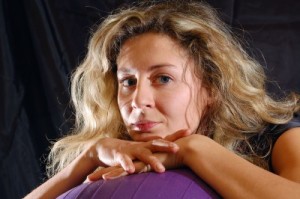 Did you know women have 60% more stroke deaths than men every year? In fact, strokes are twice as fatal as breast cancer.
Did you know women have 60% more stroke deaths than men every year? In fact, strokes are twice as fatal as breast cancer.
Could you recognize the symptoms of a stroke if you were having one? Time is of the essence when dealing with stroke-related brain damage and the sooner you detect it, the better. If the stroke is detected in time, long-term damage is reduced by use of a clot-eliminating drug that is administered in a hospital. Mateo Dayo, M.D. of the Venice-Ocala Heart Institute helps the community understand the dangers of a stroke.
What is a stroke?
According to the National Stroke Association, a stroke occurs when a clot in a blood vessel that leads to the brain eventually becomes lodged and blocks the flow of blood and oxygen to the brain’s tissue. As the tissue becomes more and more damaged due to oxygen deprivation, the symptoms of the stroke can come and go, which is why they can be difficult for some to recognize. “This is the time when you need to be aware of specific stroke symptoms. Watch for them in loved ones especially because they can be hard to notice on yourself,” says Dayo.
Symptoms of a Stroke:
· Sudden numbness or weakness, especially on one side of the body
· Confusion
· Trouble understanding and communicating
· Dizziness, trouble seeing and loss of coordination
· Sudden, severe headache
Symptoms of a Stroke, Unique to Women:
· Sudden pain or weakness in the face or limbs
· Sudden onset of hiccups or nausea
· General weakness
· Sudden chest pains
· Shortness of breath and palpitations
“Women experience 60 percent more stroke deaths than men every year,” says Dayo. “That’s why it is so important for women especially to be aware of any changes in their body’s normal functions.”
The American Heart Association warns that stroke has already proven to be twice as fatal as breast cancer. But many women are still more concerned with breast cancer. “The assumption is that breast cancer and all types of cancer are common killers, so the risk for stroke should be minor. While cancer is deadly, this notion leads to negligence on the part of the patient to heed other health warnings that their bodies are trying to communicate,” explains Dayo.
“Unfortunately, some of the symptoms are so characteristic of the body’s everyday function, people really need to know what to look for,” he said. The sudden onset of seemingly benign stroke symptoms is the first sign for women to see a doctor. For some, headaches might be a regular occurrence but any abrupt difference outside of an individual’s normal biological responses should be taken into careful consideration.
At the onset of stroke symptoms, Dayo advises, “Call 9-1-1. Three hours after the onset of symptoms is the end of a critical time slot. Try and remember when the first symptoms appeared so that you can take early action.”
“The bottom line is this,” Dayo concludes, “it is imperative that people know their bodies; know what ‘normal’ is for them as an individual. Any sudden change deserves medical attention. Remember, stroke damage cannot be undone.”
About the Venice-Ocala Heart Institute:
The foundation of the institute is simple: to care for families as they would for their own. The physicians have worked in complete cooperation with the Venice Regional Medical Center to build a program that has provided the highest quality of care – recognized as one to the Top 100 cardiac surgery programs in the nation for four consecutive years. The goal of the Venice-Ocala Heart Institute is to draw upon the expertise of two specialties – cardiovascular surgery and anesthesia to deliver the best quality of cardiothoracic and vascular care to the heart, lungs and vascular needs of the patient. The Venice-Ocala Heart Institute is located at 706 The Rialto in Venice, Florida. For more information, contact the Venice-Ocala Heart Institute at (941) 484-8004 or visit them online at www.VeniceOcalaHeart.com.
